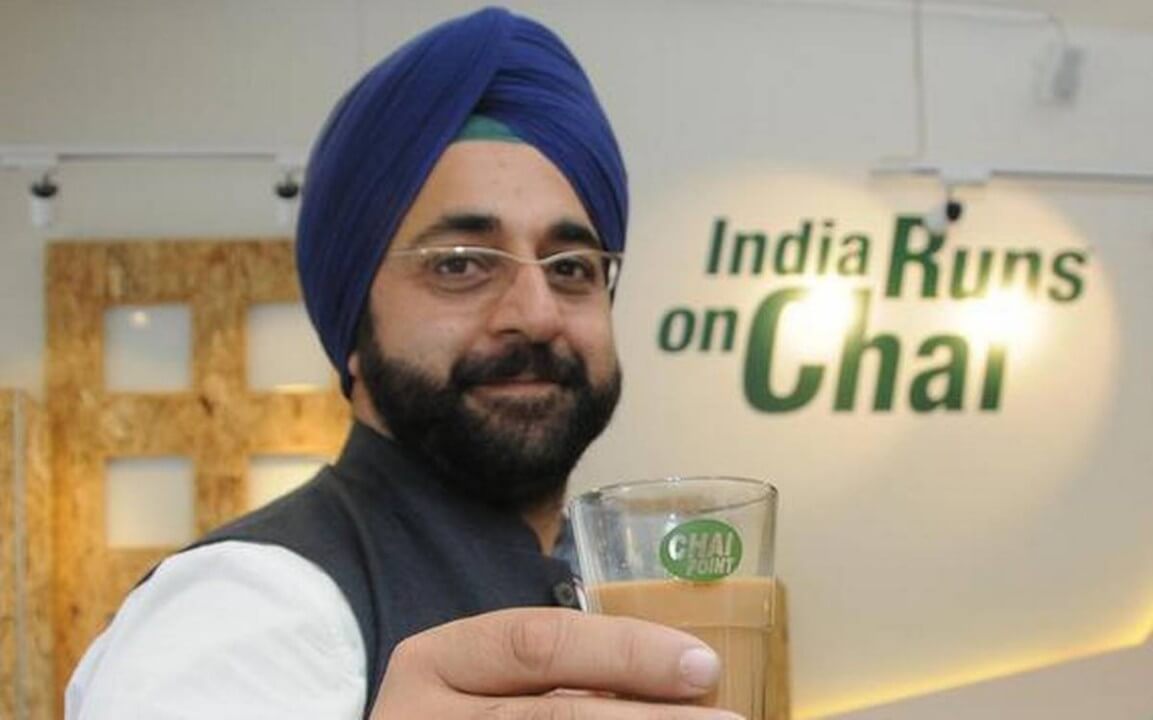By Gurudev Prasad

Few months ago, I had a fantastic #FreeFlowing conversation with Amuleek Singh Bijral, CEO of Chai Point. There were some very valuable takeaways for me. I am listing out a few that fellow entrepreneurs and brand builders might find useful.
Excerpts from our conversation :
#1 We wanted to build for the billion, from day one
One of our first learnings was that the perceived availability of chai was high rather than the actual availability. For those looking for a good cup of chai, it’s actually very difficult to find. There was no doubt about the size of the market either – it is very large, and we wanted to build for the billion, from day one.

#2 We are a product company
At Chai Point we think of ourselves as an omnichannel product beverage company. We are a product company, with the product in question being a beverage – chai. Owing to the sheer range of use cases that chai has – as a social beverage, a solo ritual, and at any time of the day, we need to have an omnichannel approach. Now every channel will have its hygiene requirements, and that might include investing in the product as well as the experience (for example, in a physical store). These fundamental expectations from every channel have to be kept in mind at the same time.

#3 Purpose defines why we do, what we do, everyday
I also consider ourselves fortunate to have grappled with, and attempted to understand brand purpose from our early days. Our brand purpose, ‘to deliver a great cup that brings people together and brightens up lives’ defines why we do, what we do, everyday.
Chai is a beverage that plays a part in so many daily scenarios in our lives – it can be a social beverage, ‘bringing people together’, in times of joy, sorrow, even just conversation among office colleagues. A cup of chai can also be the ritual beverage of a solo experience, just making it in your kitchen while having a personal conversation, or using it as a time of reflection – ‘brightening up lives’. In my opinion there are very few things in our lives that cover the emotional range that chai covers.
#4 The challenge is to make it work each time
With multiple applications and scenarios, the challenge is to make it work each time. This means availability and convenience, and also quality and consistency. A need to achieve all this at scale meant setting up processes and this led us to technology. Product quality is key to customer confidence, and consistency is key to customer retention. Also, in my experience, being authentic, showing the passion in our work, and accepting that it can go both ways – good and bad – is part of the game.
We are aware that customer love can vanish as instantly as it blossoms – if we get lax on our product quality, product consistency, or even our authenticity. By their very nature, fans are fickle.

#5 More players joining this conversation can only make it richer
My approach is to not get caught up with what competition is doing. Our country is young and impressionable, and change is constant. Even though chai is a zero pretence, grounded product, and has been around in India for more than a century, it is still fighting a battle for respect and credibility vs. other beverages. So more players joining this conversation can only make it richer.
#6 We want to build a brand that defines the chai ritual for the average Indian
To me, the Starbucks story is as awe inspiring as it is challenging. Howard Schultz built a brand that defined the coffee ritual for the average American. We want to build a brand that defines the chai ritual for the average Indian. Times have changed and so has the playbook. For example, the age of selling products solely through hoardings and advertising has passed. Customer awareness through advertising is short lived; this footprint is erased easily if not followed through at the ‘moment of truth’ with the product itself.

#7 There is no other way than to befriend courage
Mental courage is more challenging to build than physical courage. Where the path is not defined, where there is so much uncertainty and lack of visibility into the future, one has to accept these aspects of the journey and learn to work around them, or with them.
What we need to do, therefore, is to move forward and make things happen, every day, each time. When the task at hand is so tremendous, and not been done before, there is no other way than to befriend courage.
